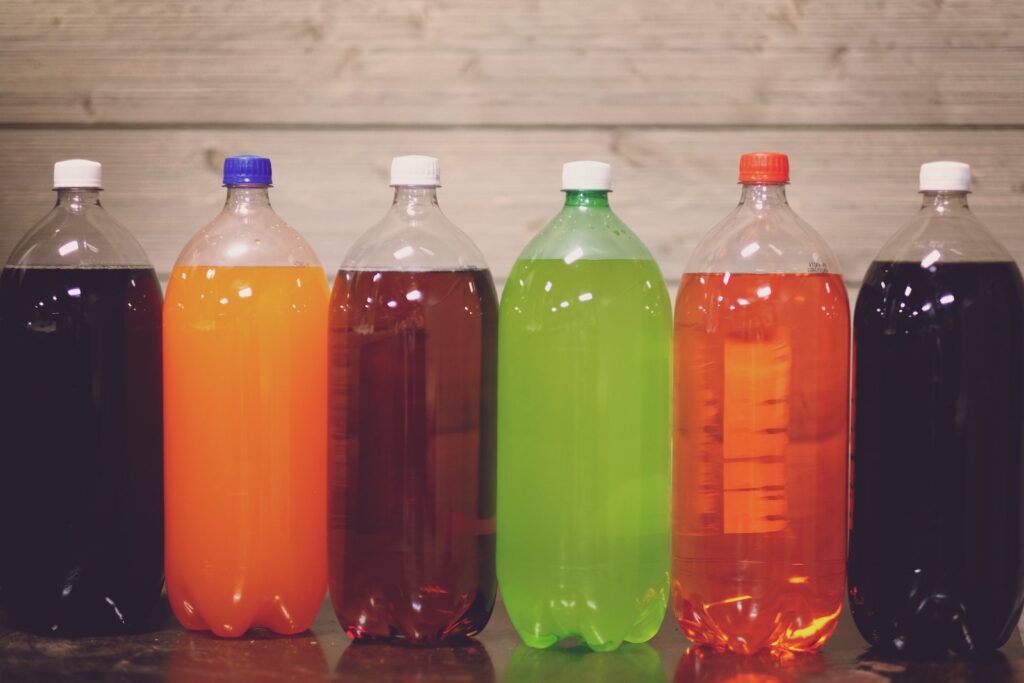
©DoroO via Canva.com
FDA Bans Brominated Vegetable Oil (BVO) Additive From Food
November 3, 2023
The US Food and Drug Administration (FDA) released a statement explaining the repeal of their existing regulation that permits the use of brominated vegetable oil (BVO), an additive, in food across the nation.
This move by the FDA is in the wake of California’s prohibition of the component in October, as a result of the passing of the California Food Safety Act. This law pioneered the first state-level ban on brominated vegetable oil in the United States. Prior, the additive had already been outlawed in Europe and Japan.
Brominated vegetable oil is a substance created by modifying vegetable oil with bromine, a deep red, strongly-smelling oily chemical. It is utilized as an emulsifying agent in citrus-flavored drinks to prevent the flavoring from separating and rising to the surface. Bromine is also frequently employed in the production of flame retardants.
According to the Eat Well Guide, created by the Environmental Working Group – a nonprofit organization devoted to research and advocacy on consumer health, toxic chemicals, and pollutants, has shared a list of 90 products currently that contain the BVO additive.
FDA Bans Brominated Vegetable Oil Requiring Alternatives

USA Today adds that the primary culprits in this roundup are fruity-flavored drinks and sodas which uses brominated vegetable oil as one of its main ingredients. Furthermore, “the FDA determined in 1970 that the ingredient was no longer ‘Generally Recognized as Safe’ and began overseeing its use under its food additive regulations.”
The US Food and Drug Administration (FDA) has noted a marked shift in the practices of numerous beverage producers who have opted to substitute Brominated Vegetable Oil (BVO) with alternative ingredients. This comes in light of the FDA’s recent proposal to overturn the regulations related to BVO usage.
However, despite these progressive industry changes, certain smaller grocery store brands and regional drinks continue to contain this additive. Examples include variants of the Great Value beverage line and Sun Drop.
“According to the Center for Science in the Public Interest, an independent consumer advocacy organization, BVO ‘leaves residues in body fat and the fat in brain, liver, and other organs.’”
Moreover, the organization highlights that BVO can be transmitted from a breastfeeding mother to her infant. This transfer can potentially result in heart lesions, fatty changes in the liver, and compromised growth and behavioral development in the child.
Recent News
Premium and Healthier Food Options Gain Traction
As consumers become more mindful of their spending, the global sales of cooking ingredients and meals saw a notable increase of 4.4% in 2023, driven by inflation and higher commodity prices, according to Euromonitor International. This trend underscores a shift in consumer behavior towards more economical choices while still showing a preference for premium, healthier, and environmentally sustainable options.
Dairy Manufacturers Inc. Issues Voluntary Recall of Baby Formula
In a significant move, Dairy Manufacturers Inc., a Texas-based company, has initiated a voluntary recall of several baby formula products after they were found to be noncompliant with U.S. Food and Drug Administration (FDA) regulations. The recall encompasses all lot codes of three specific products: Crecelac Infant 0-12, Farmalac 0-12, and Farmalac 0-12 Low Lactose. This announcement was officially published on the FDA’s website on Saturday.
Fitness Equipment to Become $18.4 Billion Market
The global fitness equipment market is projected to reach $18.4 billion by 2033, growing at a CAGR of 3.02% from 2024 to 2033, according to Allied Market Research. Key drivers include the integration of Internet of Things (IoT) technology in fitness devices and the rise of corporate wellness programs. IoT-enabled equipment captures workout metrics in real time, enhancing user engagement and offering personalized insights. Corporate wellness initiatives promote physical activity in the workplace, increasing demand for fitness equipment in corporate gyms.
Walmart Ends Partnership with Capitol One
Walmart has officially ended its consumer credit card agreement with Capital One, marking a significant shift in the retail giant’s financial partnerships. This decision follows a series of disputes over customer service issues that culminated in a legal battle and a federal judge’s ruling.

